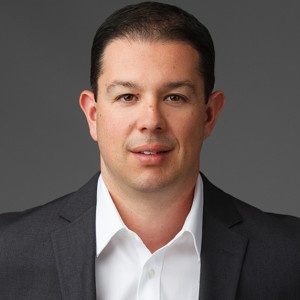Secure Facilities & Commercial Real Estate Owners
Demand for secure facilities has undergone exponential growth since 9/11 and has led to numerous opportunities for commercial real estate owners to build secure facilities for tenants. However, there is an extensive learning curve that must be overcome in order for owners to be able to service these secure environments.
A growing number of major cities and regions at home and abroad are concentrated with large volumes of square footage occupied not only by defense and intelligence agencies and the prime contractors that service them but also sensitive areas of facilities occupied by the broader US government. Nowhere is this more evident than in the metropolitan Washington, DC area. Government agencies and the contractor workforce alike are leasing and occupying commercial real estate space at increasing levels. With this shift comes tremendous security and operational implications for the commercial property owner and manager, particularly with defense and intelligence community tenants. The growth of these secure facilities has created a large gap in the ability of commercial real estate owners to deliver services to their tenants.
Owners typically do not possess the requisite security clearance to enter the space without an escort nor do their service employees tasked with providing cleaning and engineering services
WHAT DOES IT MEAN TO BE A “SECURE” FACILITY?
The government has a duty to guard the country’s national security secrets—in places designed specifically for this function. Sensitive Compartmented Information Facilities, or SCIFs, are the “vaults” that keep this information safe. These spaces range in size from large facilities to small rooms, which are being built and constructed not only on government bases, but also in commercial office buildings in urban settings.
Federal regulations such as the ICD 503 Intelligence Community Directives mandates the physical requirements for SCIF construction and management, and further details the design of everything from the walls to the floors and even the ceiling. Managing the construction process is complex and even more difficult is finding qualified service professionals who can deliver the ongoing operational services needed to keep the tenants safe, comfortable, and clean.
SECURITY LEVELS
Companies that have the resources and knowledge to effectively support property owners, managers, and tenants with special security requirements will have a tremendous advantage in satisfying the janitorial needs in markets where defense and intelligence agencies, the broader US government, and the contractors that support them are operating.
The primary hurdle property owners and facility services companies face is fielding a work force that has the necessary personal security clearances required to access and work in the space. The level of security clearance required can vary from agency to agency; however most defense agencies, the military, and the intelligence community (i.e., CIA, DIA, NSA, etc.) have similar security protocols and many strides have been taken since 9/11 to increase cooperation amongst agencies for security and intelligence related matters. Security levels include, but are not limited to, Confidential, Secret, Top Secret, SCI, and Special Access.
Personal security management is not an easy process and is absolutely critical to get right. In fact, for the secure cleaning and engineering provider, security is as important as the work itself. Both must be performed to perfection.
SECURITY HAS LAYERS
Secure facilities experts spend a lot of time studying government specifications for maintaining secure facilities. For that reason, experts say one should think about secure facilities not as a single entity, but rather as many entities—think in layers.
Employee security. The human factor in security is the single most critical element and where most points of failure occur. A select number of designated employees should be assigned responsibility for certain facets of security, such as inventory of data and documents and must be held accountable.
Physical security. Security officers need to understand their building's surroundings and environment. While physical security is the focal point of securing classified information, look beyond your office suite or headquarters.
Information security. Controlling electronic transmissions can be accomplished with shielding, filters, grounding, and devices limiting radio frequency emissions. For this reason, electronic devices such as cell phones are not allowed into SCIFs. Anything that transmits a signal is forbidden.
BUILDING OWNERS CAN SATISFY THE NEEDS OF SECURE CLIENTS
The solution for building owners to this challenge is to understand the parameters and constraints by which the tenant operates and to bring the proper resources to bear to satisfy their requirements. This includes highly qualified service providers, whose team of professionals has the requisite security clearances to access the space.
Working with specialized service providers that have dedicated staff to service secure facilities and whose security team understands the various protocols needed to access these spaces is a critical strategy for building owners.
ABOUT THE AUTHOR
Greg Warp is the founder of CommClean Secure Solutions, a leading provider of facility maintenance services for highly secure facilities and SCIFs in the Washington, DC region. The company specializes in providing janitorial, light engineering, and cleared escorting services to defense and intelligence contracting firms in areas of their facilities that are Top Secret and SCI level secure spaces.
CommClean Secure Solutions is a division of Pristine Environments.
Pristine Environments provides a comprehensive suite of facility services to federal, state, and municipal governments and within top secret facilities and military bases, higher education campuses, data centers, clean rooms, corporate campuses, commercial buildings, as well as facilities specialized for the biotechnology, pharmaceutical, and healthcare industries. The team behind Pristine Environments has executed successful facilities contracts for large and complex commercial owners and in many prominent government facilities. Pristine Environments has offices in Washington, DC and New York, NY. For more information, please visit
www.peikbm.staging.wpengine.com.


